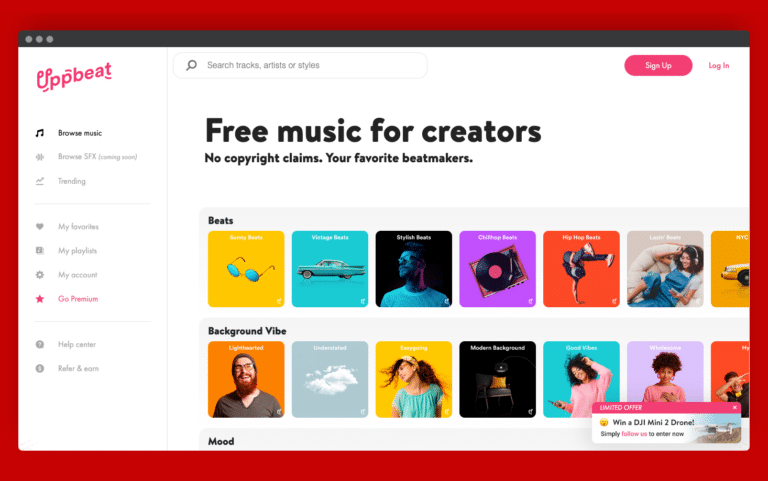Whether a YouTube video can make ad revenue, or not, is in the hands of a single algorithm.
YouTube’s ‘Content ID’ tool scans a user’s upload, and on recognising copyrighted music or video can reroute ad revenue to the rights holder or, in the worst cases, take the content down for good.
The process is no longer a problem just for YouTuber stars. Quick thinking small businesses and event organisers have responded to lockdown with an online pivot, and with it the same gamble on an algorithm which acts first and explains later.
“There are so many freelancers, yoga teachers, fitness instructors and micro-organisation which now have YouTube channels” explains Lewis Foster, co-founder of Leeds-based Music Vine and its newly launched platform Uppbeat.
The platform allows content creators to download music for free, or as part of a subscription, for use in video productions.
As the licence holder, Uppbeat waives these copyright claims, which are “a big headache” for creators.
Launched last Monday, Foster told Prolific North that the ‘freemium’ platform has already received 2,000 sign-ups, and is seeing “significant”’ traffic to its website via the link Uppbeat requires creators add to their video description.
Work for the world’s biggest brands
Born in 2015, Uppbeat’s parent company Music Vine has since built a reputation across the globe, and boasts work with the world’s biggest brands, including Google, Amazon, Tesla and Adidas.
Now a large selection of its music catalogue is being offered to creators via the Uppbeat platform, with the promise of a worry-free upload. The end-game is to be the “ubiquitous [music] resource for YouTube”.
The link required in a video’s description allows the firm to waive any copyright claims, and is a “key part of the marketing strategy”, he said.
Traffic to Uppbeat from these links suggests creators have already downloaded Uppbeat’s music for use in their videos.
Another key marketing decision is which – and how many – tracks are offered to free users, and which are worthy of the £6.99 monthly subscription.
The company has taken the view that more specific tracks such as Christmas-themed songs, are more likely to end up behind a paywall.
Foster had originally taken on the paywall decisions himself.
“For the first 600 tracks, I personally went through and selected which ones were free and premium. Obviously, that’s just not practical!” he said. The rest of the team now helps with those decisions.
Foster said Music Vine receives music from up to 200 artists a week. Uppbeat has already been contacted by musicians keen to get their tracks listed on its new venture.









